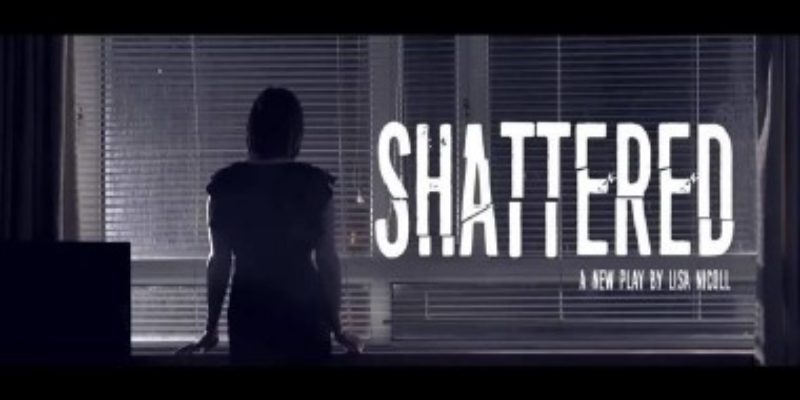
‘Shattered’ highlights the issue of social isolation. The world is busy, everyone’s busy, everyone’s connected to communication devices and so many things are readily accessible. But how connected are we in our relationships? How connected are we with our neighbours? How connected are we within our communities?
Do life challenges make us more or less connected? Many people know what is happening in our lives but do they know how we are really feeling, how we’re doing, how we’re coping?
What if we constantly look out at the world but no one sees us?
When a person is socially isolated their experience is that others understand where they are / what has happened but that no one is doing anything about this to help them.
There is significant attention given to raise awareness of infant death. People are more aware that it happens. When a child dies, the immediate and wider family and the community are devastated. But how ready is everyone to talk about the issue? How ready are they to engage with bereaved families – not just during awareness campaigns but in everyday life?
The Scottish Cot Death Trust supports families when a healthy baby or child dies suddenly and unexpectedly. For many they will never know the reason why their child died – the death will remain unexplained. What is the impact of this added to the trauma of losing their child? Often the greatest impact comes from the local community, neighbours, friends or work colleagues feeling inadequate to support them. For fear of saying something hurtful or saying the ‘wrong’ thing they say nothing. Days turn into weeks, months and sometimes years with no contact. Relationships become fractured.
Family members tell us they are forever changed by what happened – they will never be the same person. Added to their grief are potential further negative impacts; loss of confidence and identity, social anxiety, depression and helplessness. These are compounded further when a person disengages from social interaction, or when they feel disconnected even when they are socialising, are with other family members or have gone back to work.
What about long term?
People can feel isolated because others don’t understand the long term effect – the sheer loneliness. Isolation can be real in that a person cannot cope with a social setting. They might feel anxious about facing an unknown situation. They might worry about meeting people they do not know who might ask questions they do not feel comfortable answering. They may avoid any situation they do not have complete control over.
Their experience is of relatives, acquaintances, friends and colleagues not seeing them, not hearing them, nor talking with them. They may stop contacting people, attending groups, or going to work or find reasons to reduce the time doing these if cannot be avoided altogether.
Isolation can also be perceived. A person may engage with everything they used to before their child died. It may be that their thoughts and feelings are altered and that their reactions to situations are changed so that they feel less joy from the activity. They feel that others see them differently and so lose the connection they once had to the activity. To see others continuing with and enjoying something as they once used to evokes feelings like “there must be something wrong with me”. A pattern of avoidance may then emerge.
‘Shattered’ sought to bring families together who had experienced the death of an infant. We took a difficult subject, created a vehicle to reach audiences across the length and breadth of Scotland (and beyond) exploring social isolation (which affects much of society for many different reasons) in an engaging, thought provoking and often humorous experience.
We explored through the play that each of the characters is isolated through experiences not always obvious to others. When a person disengages from a friend or loved one following a major life event the reasons for this can be complex and are often more to do with the hurt that person has previously experienced rather than them deciding to have less contact with the newly bereaved/ divorced / ill / disabled person.
An encounter with a stranger, or contact with someone we know but not well (such as a health professional) can be a trigger for a person to reconnect. It is once someone feels they have been noticed, listened to, validated, that they can learn to engage as the person they now are.
In this project the play is the collective voice of many parents, many stories, and many experiences. Some of these span decades some only months. These have been cleverly folded into the lives of four characters. Shattered is available to tour health, social care and education settings as well as community and corporate venues. View the video here.
Lynsay Allan is the Executive Director of the Scottish Cot Death Trust
View the poster which has been chosen as a finalist for our Annual Conference Poster Competition: SCDT In Motion
